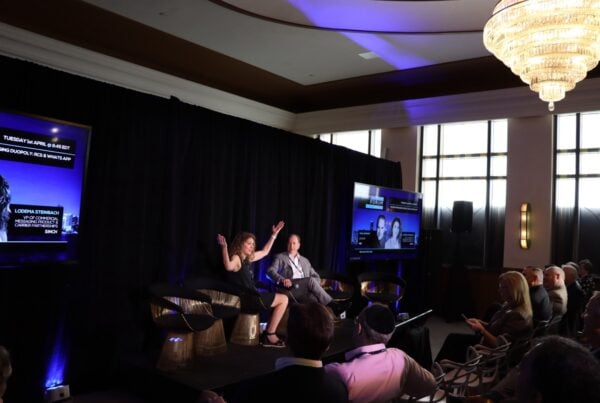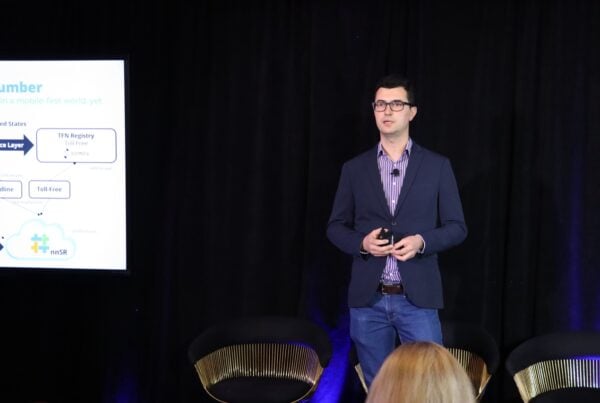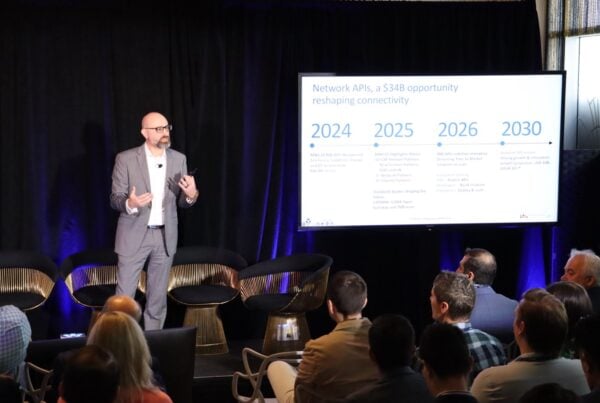As consumers, we are increasingly surrounded by connected devices that are meant to ‘help’ with every aspect of our lives. This so-called Internet of Things will include 20.8 billion devices by 2020, all collecting and collating data constantly.
Yet if we want consumers to be willing participants it is absolutely vital that they trust the services that businesses are offering them. It follows that the way that data is gathered, stored, brokered and used should be open, transparent and apparent to users so that everyone understands the value-exchange that is on the table.
Here Chris Riley, head of public policy at Mozilla discusses the implications of an IoT future and the principles of a healthy internet. This article originally appeared in MEF’s recent Consumer Trust eBulletin which can be downloaded here for free. Read Mozilla’s Internet Health Report here.

The Internet of Things, autonomous systems, artificial intelligence: these innovations will no doubt bring good to our lives and society. However, they will also create a world where we no longer simply ‘use a computer or smartphone’ – we live inside it.
This changes the stakes. The Internet is now the environment. How it works — and whether it’s healthy — has a direct impact on individuals’ happiness, privacy, pocketbooks, economies and democracies.
It is the place where everyone has a voice about whatever issue(s) they champion — and a place where ideas can be openly expressed, shared, argued over, and innovated upon. It can also be a vehicle for economic growth.
When the internet is open, it is a catalyst for invention and micro-economies, connecting billions of people, products and services around the globe.
When the internet is open, it is a catalyst for invention and micro-economies, connecting billions of people, products and services around the globe. So, next time you think about your stance on a given political topic, keep in mind that internet health is worthy of building and protecting.
Below are the tenets of a healthy internet — an internet Mozilla is dedicated to making real, with your help.
1. A healthy internet is private and secure. Internet users should be able to have greater choice over what information they share with what organisations and for what benefit. They should have the freedom to express themselves online without unwarranted surveillance. And, they should be able to safeguard their information against attacks.
2. A healthy internet is open, so that together, we can innovate. People who want to change the world should be able to build products and understand different points of view through open source code and idea sharing. Copyright and patent laws should be reformed so that in this digital age, they foster collaboration and economic opportunity.
3. A healthy internet is decentralised. There shouldn’t be online monopolies. Instead, big and small businesses — and individuals from around the world — should all be able to contribute to and provide online services. Internet users should be able to reap the benefits of competition and exposure to different ways of thinking.
4. A healthy internet is for everyone. People — no matter where they live in the world, their income, their language, the colour of their skin, or their gender — should have unfettered access to the internet.
They should be able to both consume it and create it so that the internet reflects the diversity of the people who use it.
5. A healthy internet is shaped by the people. The internet is a place where everyone can have their individual voice.
Everyone should have the skills to read, write and participate online. Web literacy should be foundational in education, alongside other areas like problem-solving and creativity. People everywhere should be able to shape the internet to solve for our world’s challenges.
When the internet is healthy, domestic and global progress can be achieved because people can learn, teach and contribute freely to things they care about. It’s something everyone can agree on.
Download the free Consumer Trust eBulletin now
Supported by Mozilla and bics, this eBulletin examines the issue of Consumer Trust in the mobile ecosystem.
It takes an in-depth look at the business models, regulatory landscape and market drivers that are shaping mobile business through the lens of Consumer Trust and includes discussion on a healthy Internet from Chris Riley, head of public policy at Mozilla, a look at the influence of the forthcoming GDPR from senior security & risk analyst Chris Sherman at Forrester as well as a guide to global regulation, market forecasts and much more.







Nice it seems to be good post… It will get readers engagement on the article since readers engagement plays an vital role in every blog.. i am expecting more updated posts from your hands.